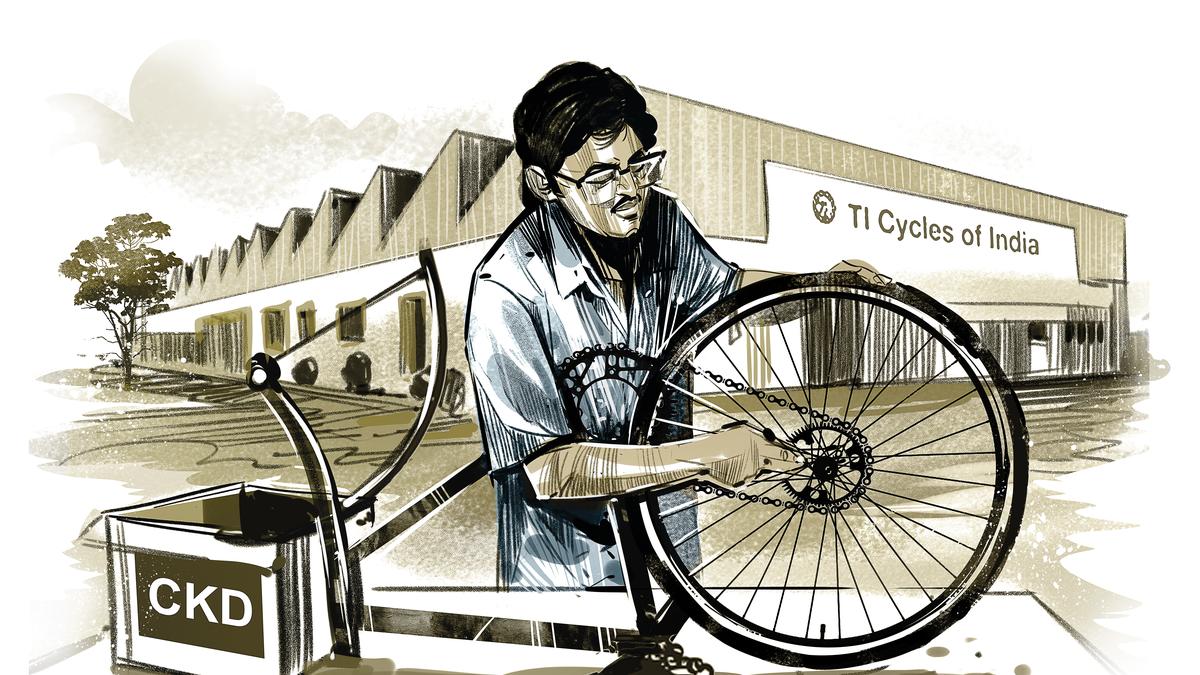
A case in Madras High Court determined what a cycle meant in commercial sense
The Hindu
Pre-Independence era CKD cycle imports in India led to landmark fiscal law interpretation by T I Cycles.
In the pre-Independence era, bicycle dealers in India would import cycles in a ‘complete knocked down’ (CKD) condition. That is, all components of a cycle, including the rims, the freewheels, the frame, the handle bar and the tubes, would be packed in cases of six and 12 sets and despatched. Dealers would assemble these parts into cycles.
In later years, Indian cycle manufactures adopted the same practice and despatched the knockdown cycles to wholesalers and retailers. One of the country’s leading cycle manufacturers — T I Cycles of India — based out of Ambattur in Madras too adopted this business practice.
Till the beginning of March 1975, both cycles and cycle parts were listed under Item 35 in the First Schedule to the Central Excise and Salt Act, 1944. Under the Act, there was an excise duty only on two cycle parts: freewheels (₹2 each) and rims (₹4 each).
On March 1, 1975, by way of the Finance Act, 1975, Item 68 was introduced in the First Schedule, wherein “all other goods, not elsewhere specified, manufactured in a factory” were mentioned. The following year, while Item 68 was retained, in Item 35, ‘cycle’, was removed and only ‘cycle parts’ (freewheels and rims) were retained.
Before these changes were introduced, there was no levy of excise duty on fully assembled cycles cleared from the factory, or cycles cleared unassembled, known to the trade as completely knocked down. However, after the introduction of the residuary Item 68, the Excise Department took the stand that in respect of cycles cleared from the factory completely knocked down, freewheels and rims would be charged excise duty under Item 35, and the other parts under the residuary Item 68.
The manufacturers represented to the government that in respect of cycles cleared completely knocked down, only freewheels and rims (listed in Item 35) were liable to excise duty and not the other parts. They argued that there was no scope for invoking the residuary Item 68 to levy excise duty on the other parts. In February 1976, the government rejected their representation. It took the stand that supplies of cycles in an unassembled condition was basically supplies of different parts of a cycle.
The T I Cycles challenged this in court. Its legal challenge initially failed. Thereafter, it moved an appeal before the Madras High Court. The company argued that traditionally cycles had been sold by the manufacturer/importer and bought by wholesaler/retailer only in a complete knocked down condition and the word, ‘cycle’, had been understood by the trade as ‘cycle in CKD condition’. A cycle despatched completely knocked down was nevertheless a cycle and Item 68 could not be applied to such cycles.













